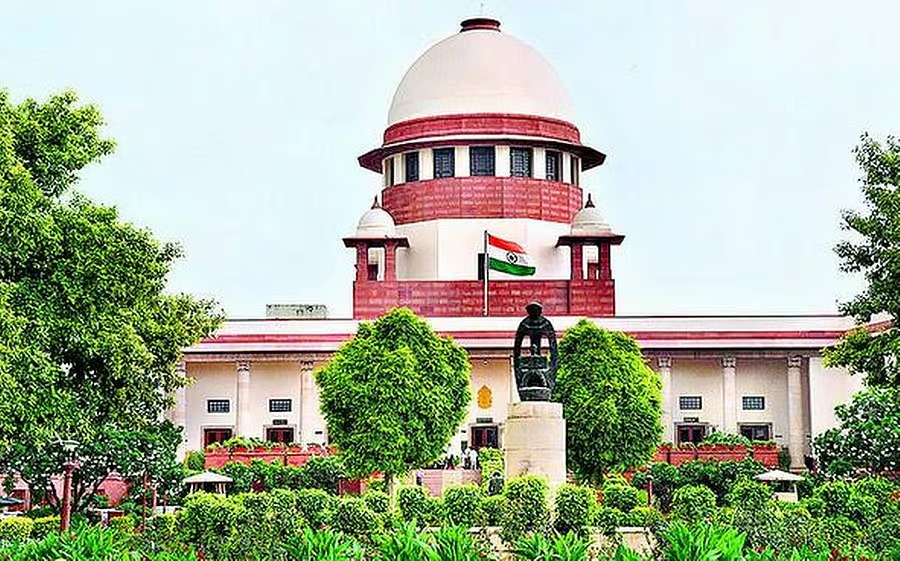
Supreme Court: Trial Courts Can Order Tenants to Pay Arrears During Eviction Suits
SC upholds power of courts under Order XV-A CPC to protect landlords from prolonged defaults
Tenants must deposit arrears and pay monthly rent during trial or risk losing defence
By Our Legal Correspondent
New Delhi: November 26, 2025:
In a landmark judgment, the Supreme Court of India has held that trial courts have the authority to direct tenants to clear arrears of rent or license fees during eviction proceedings. The ruling, delivered by a bench of Justices J.K. Maheshwari and Vijay Bishnoi, clarifies the scope of Order XV-A of the Code of Civil Procedure (CPC), which was introduced in Maharashtra to protect landlords from prolonged defaults by tenants.
Also Read: IBBI Issues New 2025 Guidelines to Speed Up Insolvency Professional Appointments Across India
The Court emphasized that tenants cannot continue to occupy premises without paying rent or license fees while litigation drags on. This decision is expected to have a major impact on landlord-tenant disputes across the country.
Background of the Case
The case arose from a dispute where a licensee failed to pay arrears amounting to ₹1.46 crore and continued to occupy the premises without clearing dues. The Bombay High Court had earlier denied mandatory deposits under Order XV-A, prompting the matter to reach the Supreme Court.
The apex court observed that:
- In suits filed by lessors or licensors seeking eviction and arrears, trial courts may direct defendants to deposit arrears and continue paying monthly rent.
- If tenants fail to comply, their defence can be struck off.
- The provision was specifically inserted to prevent misuse of litigation by defaulting tenants.
Court’s Observations
The Supreme Court made several important points:
- Mandatory Deposits: Order XV-A empowers courts to order tenants to deposit arrears and pay monthly rent during trial.
- Protection for Landlords: The provision ensures landlords are not deprived of legitimate dues while cases remain pending.
- Consequences of Default: If tenants fail to comply, courts can strike off their defence, effectively paving the way for eviction.
- Error by Bombay HC: The Supreme Court held that the High Court erred in denying mandatory deposits and failing to enforce Order XV-A.
Legal Significance
This ruling is significant for several reasons:
Also Read: CBDT Advisory: Taxpayers Must Disclose Foreign Assets and Income Under CRS & FATCA for Transparency
- Strengthens Landlord Rights: Landlords now have stronger protection against tenants who default on rent but prolong litigation.
- Clarifies CPC Provisions: The judgment provides clarity on the application of Order XV-A, which was introduced to balance landlord-tenant interests.
- Deterrent Against Misuse: Tenants can no longer misuse court proceedings to delay eviction while enjoying possession without payment.
Related Cases
The Supreme Court has delivered similar rulings in recent years:
- Tenant Can’t Evade Rent Payment (SC, 2025): The Court held that filing an appeal against rent fixation does not excuse tenants from paying rent unless a stay is granted.
- Appeal Doesn’t Mean Stay (SC, 2025): The Court upheld eviction of tenants in Coimbatore who defaulted for six years, ruling that appeals do not suspend rent obligations.
These cases collectively reinforce the principle that tenants must pay rent during litigation and cannot exploit procedural delays.
Impact on Tenants and Landlords
The ruling has wide implications:
- For Tenants: They must deposit arrears and pay monthly rent during trial. Failure to comply may result in losing their defense.
- For Landlords: The judgment ensures landlords receive dues even while eviction suits are pending.
- For Courts: It reduces frivolous defenses and speeds up resolution of landlord-tenant disputes.
Expert Opinions
Legal experts have welcomed the ruling:
- Property Lawyers: They note that the judgment strengthens landlord rights and discourages misuse of litigation.
- Tenant Advocates: Some caution that courts must balance fairness, especially for tenants facing genuine financial hardship.
- Policy Analysts: The ruling aligns with the government’s push for faster dispute resolution and judicial efficiency.
Broader Significance
The Supreme Court’s decision reflects India’s evolving approach to landlord-tenant law. By enforcing Order XV-A CPC, the judiciary is promoting accountability and ensuring that tenants cannot occupy premises without payment.
This ruling also supports the broader goal of reducing backlog in civil courts by discouraging frivolous defences and ensuring compliance during litigation.
Conclusion
The Supreme Court’s ruling that trial courts can direct tenants to clear arrears during eviction suits under Order XV-A CPC is a landmark judgment that strengthens landlord rights and clarifies tenant obligations. By holding that failure to comply may result in striking off defences, the Court has sent a strong message: tenants must pay rent during litigation or risk eviction.
For landlords, the ruling provides much-needed relief against prolonged defaults. For tenants, it underscores the importance of compliance and fairness in rental relationships.
🔑 Suggested Keywords for SEO (Google + ChatGPT)
- Supreme Court tenant arrears eviction case
- Order XV-A CPC Supreme Court ruling
- Trial court power to direct rent deposit
- Tenant defense struck off Supreme Court
- Bombay HC error tenant arrears case
- Supreme Court landlord tenant dispute India
- Rent arrears eviction suit Supreme Court
- Tenant obligations during eviction trial
- Supreme Court eviction arrears judgment
- Order XV-A CPC landlord protection
Also Read: India Marks Constitution Day: Remembering Ambedkar and 76 Years of the Nation’s Guiding Document
Also Read: ITAT Rules: Purchases Backed by E-Way Bills Are Genuine, Not Bogus
Also Read: Supreme Court: Justice Needs Human Interpretation, Not Mechanical or AI-Based Application of Laws